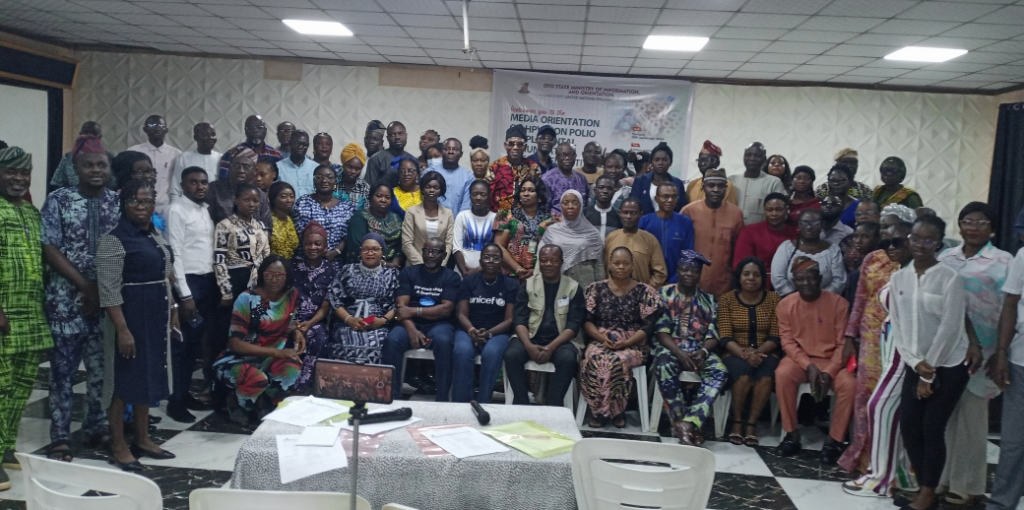As the Oyo State government steps up activities for its polio campaign, stakeholders have called on the media to lead the campaign to ensure the success of the programme.
JATS Online News reports that the appeal was made during a one-day zonal media orientation on Non-Polio Supplemental Immunization Integrated Activities (NPSIA), for the Southwest Zone and Edo State, held in the city of Oyo, Oyo State, on Thursday, September 26, 2024.
Mrs. Aderonke Akinola-Akinwole, UNICEF’s Social and Behavioral Change Specialist, said the event aimed to galvanize the media to play a crucial role in eradicating the crippling disease through accurate reporting and public sensitization.
Akinola-Akinwole emphasized the gravity of leaving children unvaccinated, saying, “A child that is not vaccinated today poses a threat to other children.”
She further explained that a single unvaccinated child could become a source of infection in communal areas such as schools, playgrounds, and fields, potentially leading to devastating outbreaks.
In her statement, she stressed that ensuring children are vaccinated is not just about individual health but also about safeguarding the wider community.
She urged the media to take up the responsibility of educating the public, dispelling myths, and encouraging parents to prioritize their children’s health. “Polio is a preventable disease, yet its consequences are irreversible. A simple vaccine can shield children from a lifetime of hardship,” she stated, underscoring the need for media professionals to consistently push for immunization.
Mr. Olarinde Olaoye Samuel, Oyo State Health Promotion Officer, also emphasized the far-reaching impacts of polio. He warned that “if a child comes down with polio, it could affect over 200 others in the community.” This staggering statistic highlights the domino effect of failing to vaccinate, leaving entire communities vulnerable due to negligence.
Mr. Olarinde stressed that there is no cure for polio; only prevention through vaccination can stop its spread.
He further identified unsanitary environments, close contact with infected individuals, and giving birth in unhygienic settings as some of the primary causes of infection.
He called on parents and guardians to take proactive steps to ensure their children receive their full doses of vaccines.
